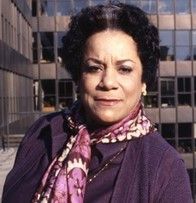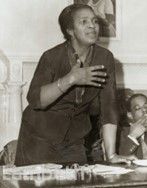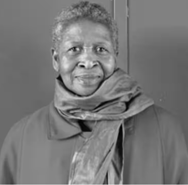The misconstrued storytellings of black history and culture have driven the focus on reclaiming black narratives in this year’s Black History Month. This marks a shift towards highlighting historical inaccuracies and shining a light on triumphant stories that provide insight into the roots of black heritage. In turn, empowering individuals to feel confident and proud when speaking about their heritage and culture.
This article discusses the narratives of three influential women and shed light on their noteworthy influence.
Dame Jocelyn Barrow
Dame Jocelyn Barrow was an incredibly influential individual within a range of public bodies, ranging from the BBC to the Parole Board. Jocelyn Barrow was born in Trinidad in 1929 and moved to the UK in 1959, where she proceeded to found a multitude of influential organisations. One of the first of these was the Campaign Against Racial Discrimination (CARD).
In 1964, Jocelyn and others had already formed the campaign against racial discrimination when a meeting occurred with Martin Luther King, who helped refine the formation of CARD. Following this, a nationwide campaign was launched, leading to the Race Relations Act, which included employment coverage in 1968. Despite the Act being updated and resulting in an increase in Black people being employed, there remained a significant amount of overt discrimination and hostility. This compelled Barrow to remain highly vigilant and continue her fight against racial discrimination, leading to her appointment as a member of the Community Relations Commission.
Furthermore, Jocelyn became the first Black female governor of the BBC and founded the Hackney Community Housing Association. Dame Jocelyn Barrow serves as a prime example of a complex triumphant story that Black History Month aims to highlight.

Claudia Jones
Claudia Jones was born in Trinidad and worked in the USA before being exiled to the UK. While in the UK, Claudia continued with her goals of fighting against racial inequality, discrimination in the workplace, and women’s rights. To do this, she worked with activist organisations and campaigned against these issues, which deemed her a pioneering political activist.
Claudia not only founded the first commercial Black newspaper, but was the mother figure in launching the first Notting Hill Carnival. Following the 1958 riots in Notting Hill, Claudia wanted to uplift the atmosphere within the local Black communities. In turn, she helped to launch the first Notting Hill Carnival in 1959, which was hosted in St Pancras Town Hall. This carnival still takes place today and is a key date each year for many Londoners to celebrate Caribbean heritage. This long-standing Carnival demonstrates the legacy she has left in reclaiming black narratives and black liberation.

Mavis Best
Mavis Best moved from Jamaica to the UK in 1961 and trained as a Community Development Youth Worker at the University of London in 1974. Subsequently, in 1977, Mavis and other influential women from Lewisham initiated the ‘Scrap SUS’ campaign, focusing on SUS laws that permitted police to racially profile and detain young Black individuals. Through numerous demonstrations, the group successfully advocated for the repeal of the law in 1981, marking a pivotal moment in British Black Civil Rights. Mavis emerged as a key leader in this campaign, leaving a lasting impact on public policy and establishing a significant narrative in Black history.

As we honour Black History Month this year, the compelling stories of these three women provide a reminder of the diverse and powerful narratives within the black community. By honouring these important stories, we shed light on key experiences and emphasise the significance of Black history that continues to inspire and educate.